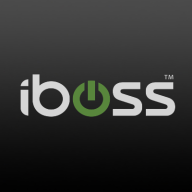


LastPass Business and JumpCloud compete in the identity management solutions category. LastPass Business holds an advantage with ease of use and robust password management, while JumpCloud's broader platform integration often justifies its cost.
Features: LastPass Business offers secure password sharing, seamless multi-factor authentication, and a user-friendly master password system for easy access. JumpCloud provides extensive cross-platform integration, powerful directory services, and an intuitive single sign-on system that integrates with applications like Microsoft 365 and Google Workspace.
Room for Improvement: LastPass Business could enhance its platform integration capabilities and expand features beyond password management. Additional user management functionalities would be beneficial. JumpCloud may need to streamline its complex deployment process and improve affordability for smaller businesses. Enhancing its mobile device management features would also benefit users.
Ease of Deployment and Customer Service: LastPass Business is known for its straightforward deployment process and efficient support, making it accessible for primarily password-focused implementations. JumpCloud, with its more complex deployment reflecting comprehensive functionality, provides substantial support to mitigate this complexity, appealing to businesses needing extensive directory management.
Pricing and ROI: LastPass Business offers a cost-effective solution focused on efficient password management tools at a lower setup cost, maximizing ROI for primarily password-centric needs. JumpCloud requires a higher initial investment due to its expansive feature set but can provide a considerable ROI for organizations seeking a complete directory solution with valued platform integration.


| Company Size | Count |
|---|---|
| Small Business | 6 |
| Midsize Enterprise | 6 |
| Large Enterprise | 5 |
| Company Size | Count |
|---|---|
| Small Business | 13 |
| Midsize Enterprise | 2 |
| Large Enterprise | 3 |
| Company Size | Count |
|---|---|
| Small Business | 8 |
| Large Enterprise | 7 |
iboss offers a comprehensive security platform designed for diverse use cases such as web filtering, data loss protection, corporate proxy services, and URL filtering.
iboss integrates advanced features to address dynamic security needs, leveraging its strength in SASE, ZTNA, AI initiatives, and cloud integration, while ensuring seamless operations for remote work. It excels in historical forensics, malware protection, and flexible cloud deployments. Users benefit from comprehensive traffic scanning, robust malware detection, and PaaS capabilities that reduce hardware management. An intuitive admin console ensures efficient management with content filtering and low false positives. SSL decryption enhances security, while DLP protects data in AI conversations. Deployment is rapid and scalable, allowing effortless integration with emerging technologies.
What features does iboss offer?
What benefits and ROI should users consider?
iboss finds significant application in sectors such as education, where web filtering for K-12 is crucial, and in corporate environments requiring robust proxy services and URL filtering for network security. Its adaptability is essential in scenarios demanding flexible, decentralized security frameworks, particularly for remote work setups.
JumpCloud offers efficient device management, single sign-on, and integration capabilities. It integrates seamlessly with Microsoft 365 and Google Workspace, streamlining user management across diverse environments.
JumpCloud delivers device, user, and application management across platforms like Windows, Mac, Linux, and cloud services such as AWS and Azure. Acting as a cloud-based directory, it facilitates single sign-on and identity access management, making it an attractive replacement for Active Directory and LDAP directories. Its policy management and centralized directory simplify user and device administration, offering a user-friendly interface with flexible access control and remote management. Organizations can experience streamlined onboarding and offboarding processes, robust authentication, and scalability. Despite being powerful, room for improvement is noted in alert capabilities, comprehensive MDM for Windows, multi-tenant features, and API reliability.
What are the key features of JumpCloud?Companies across industries utilize JumpCloud for comprehensive management of devices and user identities. It is especially beneficial in technology-driven sectors where centralized directory services replace traditional Active Directory and LDAP models. Organizations employing platforms like AWS and Azure find it essential for maintaining efficient and secure access management.
LastPass Business enhances enterprise security with features like password sharing, user deactivation, and login control. Integrated with Active Directory, it ensures password management through a security dashboard, multifactor authentication, and YubiKey support.
LastPass Business provides comprehensive password management by supporting secure storage, shared folders, and master passwords for streamlined access. With an enterprise admin console and robust reporting tools, it efficiently manages credentials. It supports secure storage for procedures and notes, crucial for IT departments. Improvement areas include group inheritance, admin capabilities, and automated password rotation. Issues like URL recognition, plugin stability, and user access reporting need addressing. Enhancements in mobile app navigation and technical support are also needed, alongside increased customization and authentication options.
What are the key features of LastPass Business?In specific industries, LastPass Business is implemented as a vital tool for storing and synchronizing encrypted credentials, supporting robust password policies, and facilitating secure access control management. Organizations benefit from storing shared accounts and managing core enterprise admin passwords, promoting higher security standards across users and applications.
We monitor all Single Sign-On (SSO) reviews to prevent fraudulent reviews and keep review quality high. We do not post reviews by company employees or direct competitors. We validate each review for authenticity via cross-reference with LinkedIn, and personal follow-up with the reviewer when necessary.